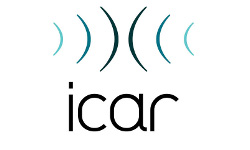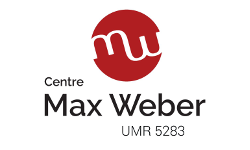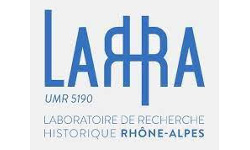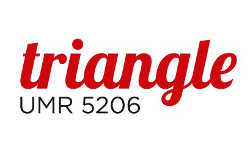Symposium ScolHandi
The inclusion of students in mainstream schools and universities has been an important site of contestation for decades in many Western countries, but with different modalities depending on the socio-institutional history and the collective capacities to make rights effective. How does this inclusion play out in French-speaking Europe and North America? What do social science approaches to disability tell us about institutional norms and social inequalities, and about other ongoing recomposition, within and beyond the school systems.
December, 16th
Opening - 9:30 am
Keynote - 9:45 am/11:00
- Serge EBERSOLD (Lise, CNAM Paris) - « Les fonctions de l’accessibilité »
- Héloïse DURLER (HEP Vaud) - « Ce que la crise COVID fait aux parents : le cas des parents d’élèves BEP en Suisse romande »
Panel 1 - 11:00 am/12:30 am
Inclusive recognition : Norms, tensions and dilemmas
- Joël ZAFFRAN (Centre E. Durkheim, U. Bordeaux) - « Les dérives de l’égalitarisme républicain en matière de handicap »
- Marie TOULLEC-THERY (Cren, U. Nantes, Inspé Nantes) - « École et scolarisation « inclusives » : comment les énoncés réglementaires façonnent-ils les conceptions et les pratiques professorales ? »
- Hélène BUISSON-FENET (Triangle, ENS Lyon) - « Équiper l’inclusion pour mieux la dépolitiser ? Le cas des politiques scolaires françaises dans la scolarisation des élèves en situation de handicap »
Lunch Break - 12:30 am/2:00 pm
Panel 2 - 2:00 pm/3:30 pm
Disability in times of Covid crisis
- Patty DOUGLAS (Brandon U.) - Remaking Inclusion through a Research creation project under COVID-19 : an intersectional Disability Studies in Education Approach »
- David PETTINICCHIO (U. Toronto) - « The Political Impacts of COVID-19 on People with Disabilities and Chronic Health Conditions (Canada) »
- Tess SHELDON (U. Windsor) - Pretext, Profit and Pandemic : Students with Disabilities in the Neoliberal University in the time of COVID
Pause - 3:30 pm/4:00 pm
Panel 3 - 4:00 pm/5:30 pm
Professions and professional practices in the light of the inclusive school
- Philippe TREMBLAY (U. Laval) : « Travailler à deux en classe inclusive. Une comparaison entre classes maternelle, primaire et secondaire au Québec »
- Nathalie BELANGER (U. Ottawa) - « Tensions dans l’accompagnement des élèves en difficulté à l’école. Entre normes professionnelles et usage de dispositifs d’aide individualisée aux élèves »
- Rachel GASPARINI (ECP, U. Lyon 2) - « Les enjeux interprofessionnels du travail en équipe auprès des élèves de maternelle avec des troubles du comportement »
December, 17th
Panel 4 - 10:00/12:00 am
Advocacy and school inclusion
- Myriam WINANCE (Cermes 3, INSERM) - « La cause de l’(in)éducable. Pratiques familiales et mobilisations associatives autour des enfants polyhandicapés (1960-2014) »
- Brigitte CHAMAK (Cermes 3, U. Paris) - « Neurodiversité : émancipation ou sélection des plus performants ? »
- Jean-Sébastien EIDELIMAN (Cerlis, U. Paris) – « L’inclusion négociée. L’hyperactivité infantile, entre militantisme et pragmatisme. »
Lunch Break - 12:00am/1:30 pm
Panel 5 - 1:30 pm/3:00 pm
The « school form » in the test of neurodiversity
- Bianca NUGENT (U. of Ottawa) « Apports et limites des pratiques d’inclusion scolaire des élèves « TSA » au Québec » : accommodements de la neurodivergence ?
- Julia GRUSON-WOOD (U. of Guelph) - « The ABC’s of professional Practices in Autism Education : How Managerialism, Resources, Ethics, and Ideals of Inclusion flow through the Antecedent-Behaviour-Consequence Chart »
- Roberto LATTANZIO (ARCH Disability Law, Toronto) : « Reflections on Advocating for Inclusive Education in Ontario : Challenges, Misalignment, and Redefining a Movement »
Pause - 3:00 pm/3:30 pm
Panel 6 - 3:30 pm/5:00 pm
Structural inequalities and systemic segregation ?
- Nirmala EREVELLES (U. of Alabama) - « Inclusion as Fetish : Race and Disability as Commodities in Public Education »
- Godefroy LANSADE (Crises, U. Montpellier 3) - « L’accès des élèves désignés handicapés mentaux en lycée professionnel : entre trajectoires individuelles et logiques institutionnelles »
- Gillian PAREKH (York U.) - « School Trajectories of/to Exclusion : Examining Biaised Notions of Ability and School-based Implications »
Pleniaire - 5:00 pm/6:00 pm
- Michaël ORSINI (U. of Ottawa) - « Who needs to (un)know ? On the Generative Possibilities of Ignorance for Autistic Futures »
Informations pratiques
Le symposium aura lieu les 16 et 17 décembre 2021 à l’ENS de Lyon, sur le campus Descartes (Métro ligne B, Station Debourg, direct depuis la gare de La Part Dieu) au rez-de-chaussée du bâtiment D8 « Ferdinand Buisson ». Le principal accès du bâtiment se situe au 19 allée de Fontenay, 69007 Lyon. Une traduction en LSF est assurée.
Il est possible d’assister au colloque dans la limite des places disponibles, en demi-jauge (et sur présentation du pass sanitaire) en écrivant à :
ou en :
Visioconférence
Jeudi :
https://us02web.zoom.us/j/3469215692?pwd=bnRadVNzMzVHb3NEVllHMGMzS1ZYdz09
Vendredi :
https://us02web.zoom.us/j/3469215692?pwd=bnRadVNzMzVHb3NEVllHMGMzS1ZYdz09









